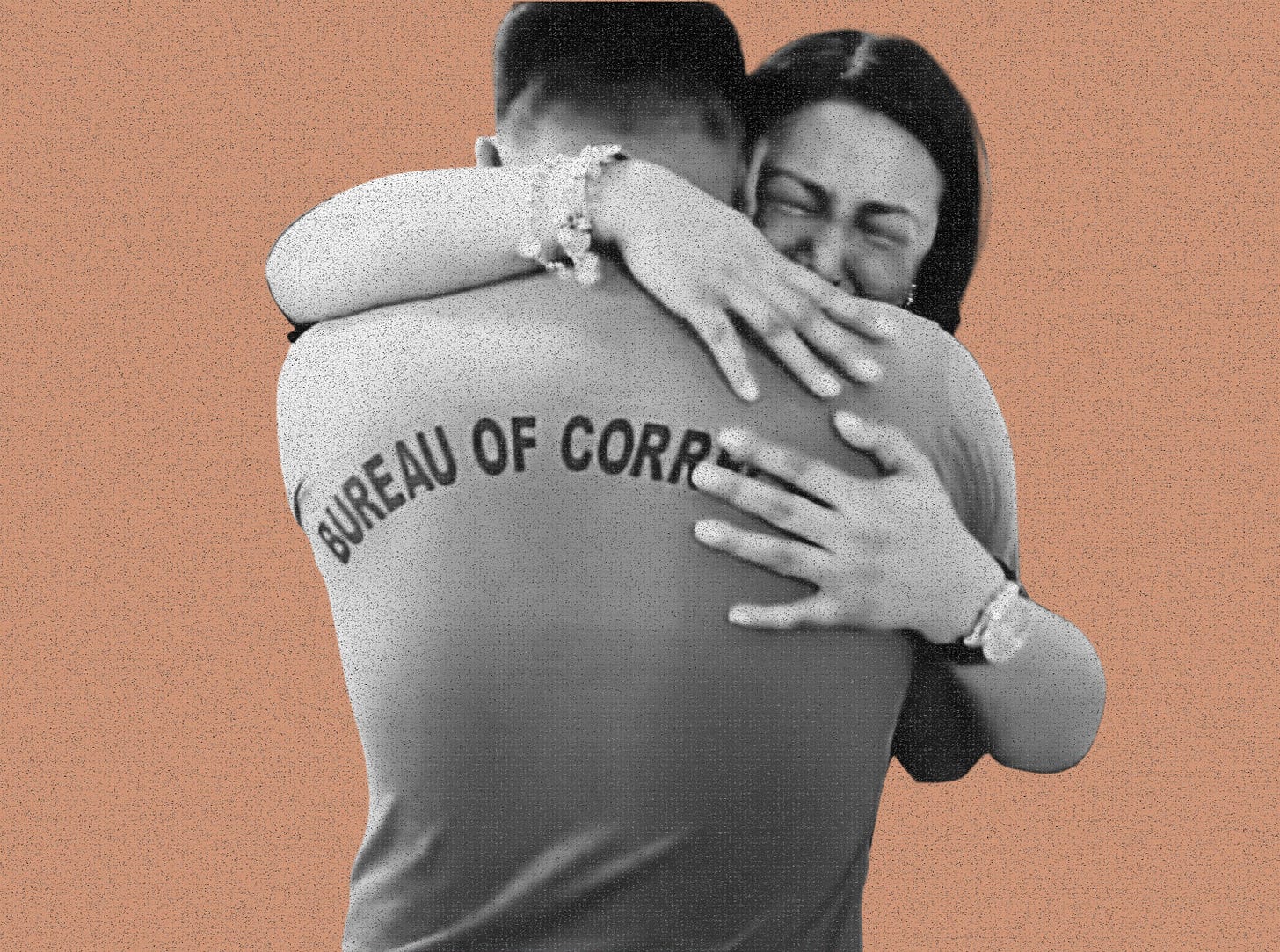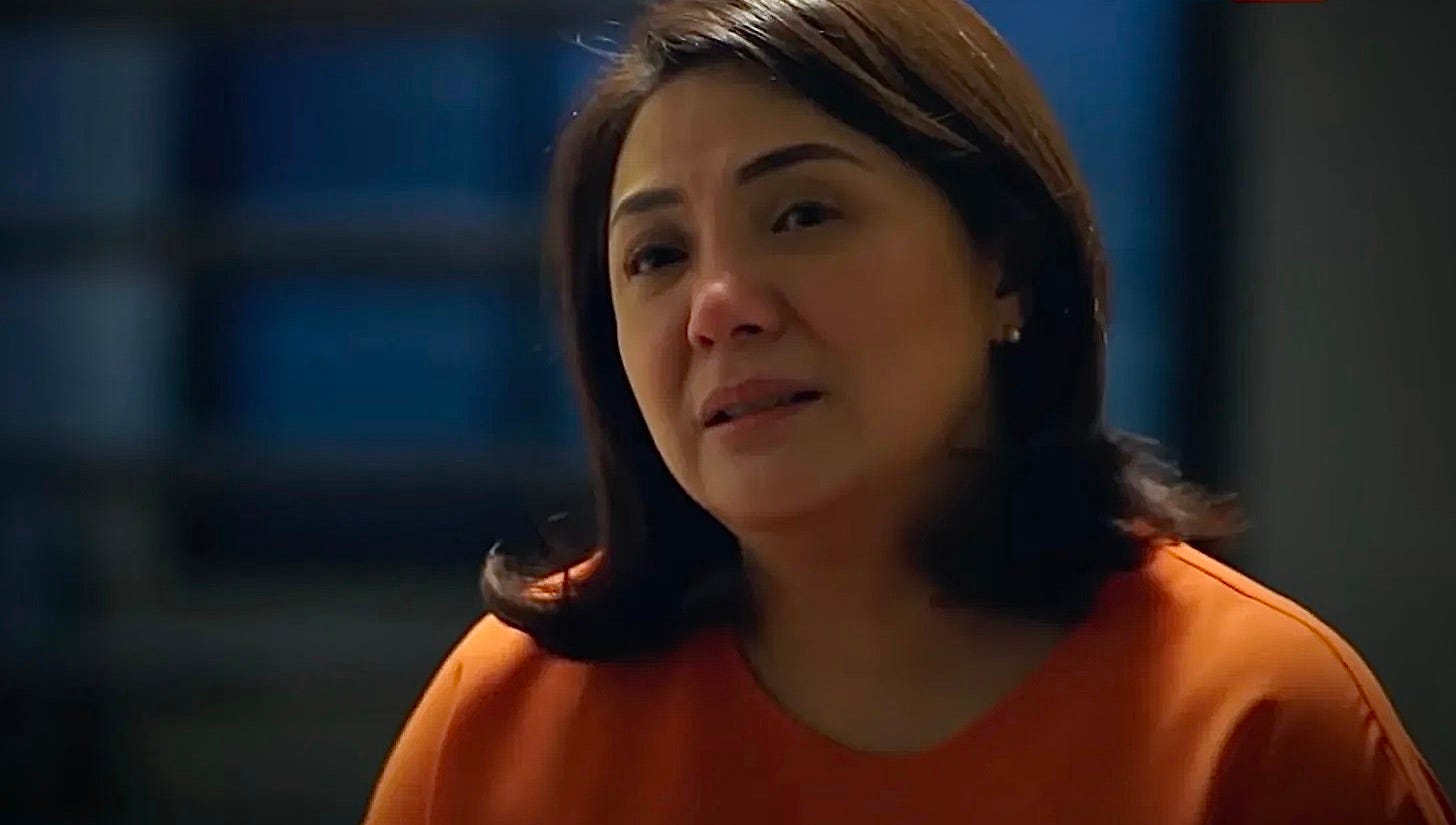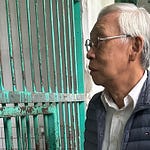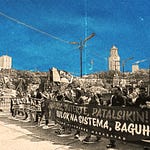In societies where the notion of retributive justice has been entrenched and normalised, prison reform or anti-death penalty activists are often sneered at. “Talk is cheap,” people could say. “Just you wait until someone in your family becomes a victim.”
Hypotheticals aside, it’s impossible to predict how any one of us would react if we were victims of brutal violence. We can only hope we’d never have to experience such a thing. But for one Filipino actress, her beliefs in restorative justice were put to the test in one of the most traumatic and painful ways imaginable.
Cherry Pie Picache, usually known as Pie, is one of the Philippines’s most celebrated actresses. During her 35-year career on the stage and screen, she hasn’t confined herself to the entertainment industry: she’s leveraged her platform and popularity to advocate for the end of harsh punishments, such as the death penalty, and in favour of restorative justice — an approach aimed at repairing harms done to victims, perpetrators and communities instead of inflicting pain and exacting revenge.
But when her 75-year-old mother, Zenaida Sison, was brutally murdered in 2014 by her own personal assistant — Michael Flores, who was 29 at the time — it shook Pie’s beliefs and convictions.
In what appeared to be an attempted robbery, Flores (while under the influence of methamphetamine) broke into Zenaida’s home in the early hours of the morning. After she woke up and began calling for help, he stabbed her 36 times with a kitchen knife and a piece of wood broken off from a door.
Pie and her driver discovered Zenaida’s body a short while later. A manhunt ensued and Flores was arrested after a few weeks. His trial lasted about a year, and, after confessing to the murder, he was convicted and sentenced to no less than 40 years in prison.
‘I was praying that I would be able to do it’
Before her mother’s murder, such types of violence had seemed distant and abstract to Pie — the stuff of fiction or sensationalist news headlines, not real life. “I really couldn’t believe that it could happen,” she says. “We stayed in a very good area. We were comfortable and we were protected.”
The shock and trauma of losing her mother in such a way forced Pie to put a pause on her advocacy work with the Catholic Church’s Episcopal Commission on Prison Pastoral Care. “Losing a loved one, losing your mother is painful enough, but losing her the way we lost her…” she says. “I must say that I wavered for a year or two. I stopped helping, I stayed away from the [church] ministry.”
“The first thing that came into my mind was that he had to pay for it — vengeance, [for] revenge.” These instincts contradicted all the principles she’d held dear, and she had to rely heavily on her faith to help her through the grief and anger. Over time, though, she began to come back to herself and her ideals.
Three years later, the opportunity arose for her to put both her faith and her belief in restorative justice into practice. She was presented with the idea of appearing in a documentary in which she would meet her mother’s killer face-to-face in Manila’s New Bilibid Prison.
Would she truly be able to forgive him?
The end result was the 2019 ABS-CBN News documentary Radical Love, which chronicled Pie’s journey to meeting Flores. She credits her faith in God as the reason she was able to go ahead with this.
“When I finally decided to make the documentary, and when it finally happened; going there, and travelling towards meeting him, even when I was walking, I was praying to God. I was really praying, and asking for the Holy Spirit to really grant me the grace to really forgive him. Because I wasn’t sure, I didn’t know,” she says.
“To come face to face with him after three years, I didn’t know what my reaction was going to be. I was even thinking, depending on how he would react on seeing me too after three years, maybe I would change my mind. So I was really praying that I could be able to do it — to really forgive him.”
Some wounds never fully heal
Six years after Radical Love first aired, I met Pie at a restaurant in Quezon City in Metro Manila, only a few blocks from where she grew up.
It was an impromptu meeting, arranged only a couple of days before by Karen Gomez-Dumpit, the former Commissioner for the Commission on Human Rights of the Philippines, and facilitated by Gerry Bernabe from the Catholics Bishops’ Conference of the Philippines (you can listen to my interviews with Gerry here, and Karen here). Throughout my time in Manila, Karen had repeatedly told me to meet Pie and listen to her story.
Predictably, ours was an emotionally charged conversation, during which Pie spoke in detail about her advocacy work, her faith and forgiveness. It wasn’t just an incredible story, but one that also provoked a lot of questions: not just about how rarely we hear of such acts of forgiveness, but also about the reasons one might choose to do this — and how many people could do the same.
Did forgiving her mother’s murderer help her, in part, heal? “Yes,” Pie said, “but that came later.” Her decision to go through this ordeal, she says, hadn’t been motivated by a desire for catharsis or soul-cleansing — she’d wanted to do it because she felt that her faith was giving her strength to address the the horrific act which had upended her life. It was clear during our conversation that the pain is still fresh is many ways; wounds like this almost never fully heal. But Pie maintains that meeting and forgiving Flores is a powerful anodyne to her anger and sorrow.
“Let’s say I let my emotions take over me before, I could even ask someone to kill him inside the prison or get back at him, or even letting him rot in jail, and not wishing him the reformation that he needs,” says Pie.
“If that happened, would that heal me? Would I be satisfied with that? No, I don’t think so, because what will satisfy me is knowing the truth, and knowing that my assailant truly, honestly, sincerely repents.”
Several weeks after our meeting, I still reflect on our conversation. I wonder how Pie was fully — in her heart — able to forgive someone who had caused such heartache and trauma to her and her loved ones; I still wonder about the strength of character that’s required to accept what has happened, and not just work towards healing yourself, but for caring for the person who caused the pain in the first place.
I don’t know if I would be able to do that. I don’t think many of us could.
In addition to this week’s podcast, you can watch the Radical Love in its entirety here:














